Have you decided to live the amazing experience of studying abroad? Spain is a wonderful destination and we’re here to help you discover why.
Yes, choosing a city can be overwhelming; there are so many great cities in the world, how could you pick just one? Relax, the first thing you have to acknowledge is your goal, and by doing this, you’ll realize which cities match your needs.
Spain has it all: small, quiet provinces and astonishing, big cities. If the latter is your best match, Barcelona is definitely the place for you. It is one of the most important cities in the country and has a big cultural and social life. Plus, it has beautiful beaches! Also, living costs here are lower than in most of the European cities and apartments for rent are more affordable.
With the first step done, you can now continue with selecting the university that best fits. Barcelona has lots of options and you have to have a clear idea of what you want and what you need. Do you fancy a private or a public institution? Are you planning on getting a Bachelor’s degree, maybe a Master?
Have you already made up your mind? Learn about the Spanish university access exam (EBAU/Selectividad) and how to apply to a university in Spain.
Read here about the best private Business Schools in Barcelona.
Or find our other guides:
The Best Universities in Valencia for International students
The Best Universities in Madrid for International Students
–> If you think the university application procedure is complicated? No worries, if you are a students of one of our University Pathway courses in Barcelona, we help you along the way.
Index
The Public and Private university system in Spain explained
The top public universities in Barcelona
1. University of Barcelona – Universitat de Barcelona (UB)
2. Autonomous University of Barcelona – Universitat Autònoma de Barcelona (UAB)
3. Pompeu Fabra University – Universitat Pompeu Fabra (UPF)
4. Polytechnic University of Catalonia – Universitat Politècnica de Catalunya (UPC)
5. Universidad Internacional Menéndez Pelayo – (UIMP Barcelona)
6. Escola Superior de Conservació i Restauració de Béns Culturals de Catalunya
(ESCR BCC)
The top private universities in Barcelona
1. International University of Catalonia – Universitat Internacional de Catalunya (UIC)
2. Ramon Lull University – Universitat Ramon Lull (URL)
3. Open University of Catalonia – Universitat Oberta de Catalunya (UOC)
4. Abat Oliba CEU University – (UAO CEU)
Frequently asked questions
The Public and Private university system in Spain explained
Spain has 76 universities in total; 45 of them are owned by the state, and the other 31 are private institutions. Among the private universities, there are those which are run by private organizations and those which are run by the Catholic Church -a small amount.
Statistically, there are more people attending public than private universities. Public institutions are also the more prestigious ones regarding their high positions in rankings along the Globe and tend to have a richer legacy.
Most of the leading universities are located in Madrid and Barcelona. However, there are also distinguished business schools and universities in other cities such as Valencia, Granada, or Salamanca.
Universities can be divided into these three groups:
- Public University or Universidad Pública: It’s funded by the national or autonomous community government.
- Private University or Universidad Privada: They’re funded and run by private organizations. Some of them also receive state funding.
- University run by the Catholic Church or Universidad de la Iglesia: They’re run by the Catholic Church and grant official titles and certificates with the same validity as public and private universities. These institutions are usually financed mostly by the students. The main difference with private universities is that church universities are governed by the agreements between the Holy See of Rome and the Spanish State and they have educational projects based on Christian humanism.
The Spanish university system has a pretty rigid structure and students usually have to follow a fixed curriculum and might be rejected when trying to switch institutions during their studies.
The 6 best public universities in Barcelona
1. University of Barcelona
Universitat de Barcelona (UB)
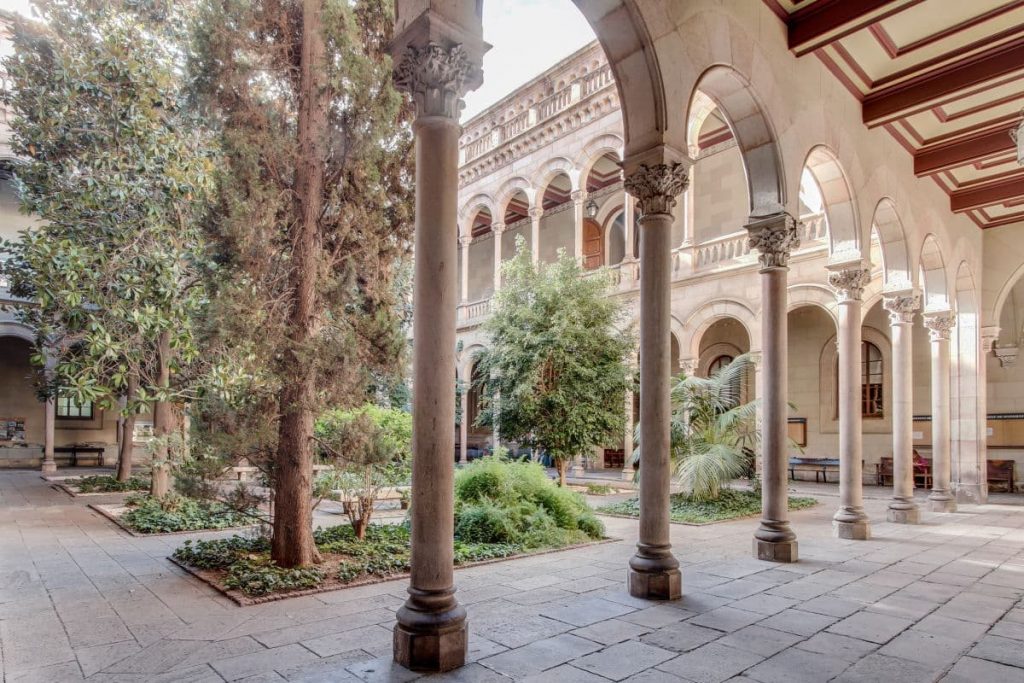
This is considered to be the best and biggest university in Spain and one of the most prestigious outside the English-speaking world. In 2020, it was ranked 1st.in the EU by Unirank and 72nd in the world by NTU Ranking, published since 2012 by the National Taiwan University. It was established on November 3rd, 1450, and has over 63,000 students of which more than 1300 are from abroad.
The UB includes 100 departments grouped in 18 faculties and two university schools, one school, and eight attached schools. It is the principal centre of university research in Spain and has become a European benchmark for research activity in terms of the number of research programmes it conducts and the excellence these have achieved. It is the highest-placed Spanish university in terms of scientific output.
Some of UB’s faculties are: Biology, Chemistry, Earth Sciences, Economics and Business, Fine Arts, Pharmacy and Food Sciences, Geography and History, and many more…
2. Autonomous University of Barcelona
Universitat Autònoma de Barcelona (UAB)
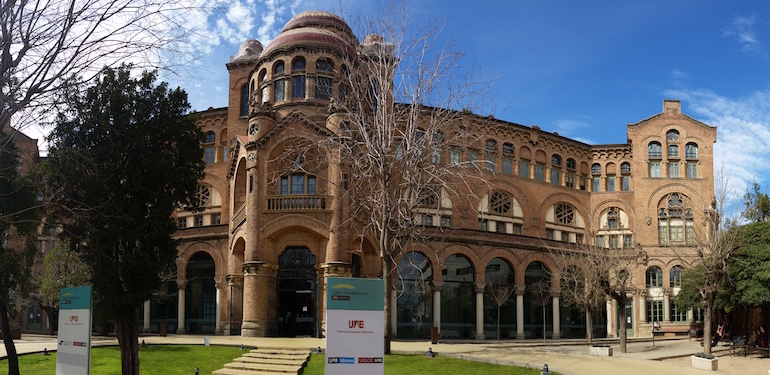
Located in Cerdanyola del Vallès, near the city of Barcelona (45 minutes ride from Plaza Catalunya), it contains 57 departments in the experimental, life, social and human sciences, spread among 13 faculties/schools in which you can accomplish qualifications in the form of first degrees, diplomas, and engineering degrees. The UAB also offers almost 80 doctoral programs, and more than 80 postgraduate programs. It is a pioneer in terms of fostering research and has over 40,000 students. UAB’s study abroad programs take place on two different campuses in downtown Barcelona. International studies, business and culture programs are available to international students.
Vila Universitaria is the residential complex of the Universitat Autónoma de Barcelona, located on its campus with a total accommodation capacity for 2193 people. The apartments have a very privileged setting: between the campus and the forest, and have great views.
3. Pompeu Fabra University
Universitat Pompeu Fabra (UPF)
 |
Established in 1990 and named after the linguist Pompeu Fabra, an expert on the Catalan language, it is also considered one of the most prestigious universities in Spain and it is one of the newest in Barcelona. Over 10,000 students attend various academic programs including life sciences, law, languages and arts. It is located in the heart of the city and espouses a philosophy of introducing new teaching methods to be on the cutting edge of learning science.
4. Polytechnic University of Catalonia
Universitat Politècnica de Catalunya (UPC)
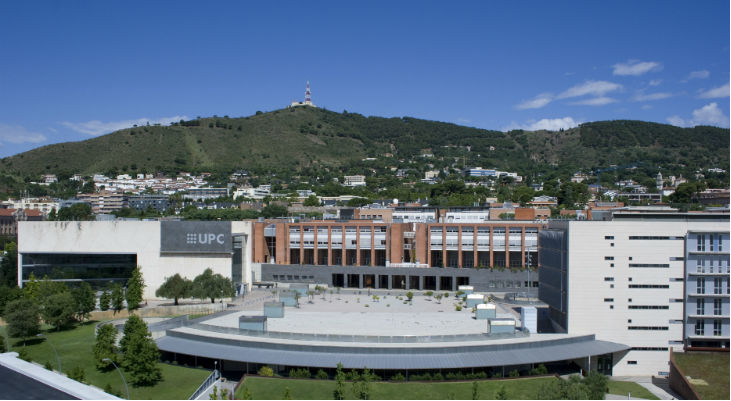
Currently referred to as Barcelona Tech, it is the largest engineering university in Catalunya, Spain. It was founded in March 1971, it has over 30,000 students, 65 undergraduate programs, 73 graduate programs, and 49 doctorate programs.
It also offers programs in disciplines such as mathematics, and architecture. It is one of Europe’s technical universities with the most international Ph.D. students and the one with the largest share of international master’s degree students.
5. Universidad Internacional Menéndez Pelayo
(UIMP Barcelona)
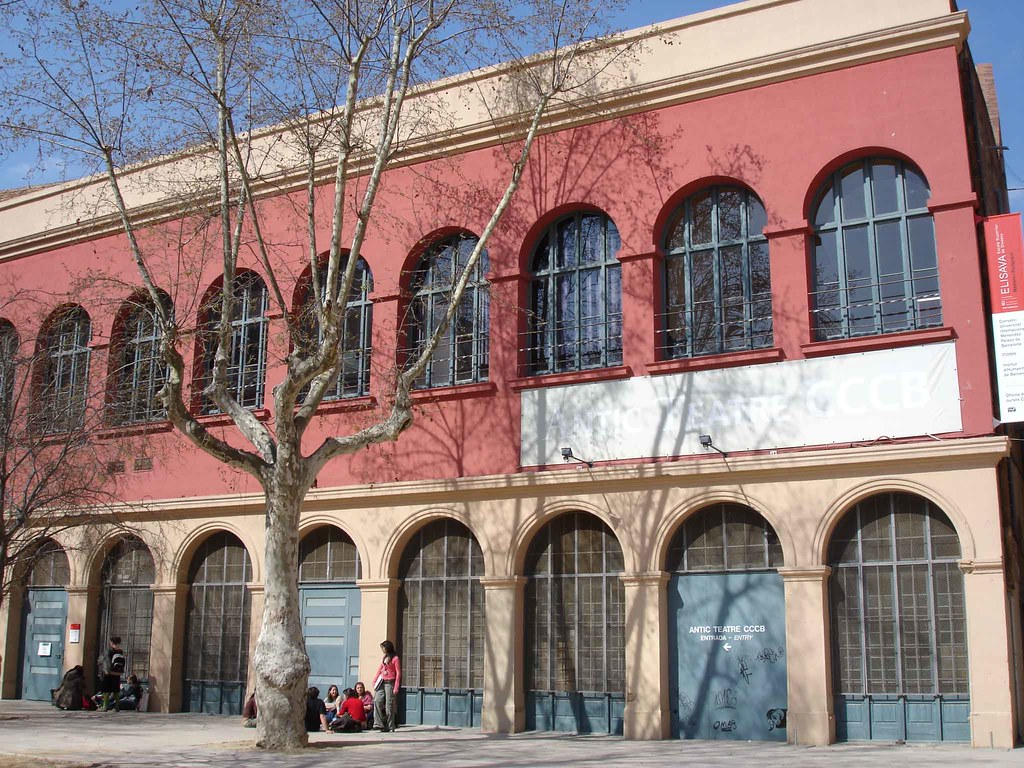
Founded under the name of Universidad de Santander in 1932, and with its main campuses still in the city that gave its original name, Barcelona campuses are the ones that promote international study for people that want to learn Spanish language and culture, which are a big part of the university programs.
6. Escola Superior de Conservació i Restauració de Béns Culturals de Catalunya
(ESCR BCC)
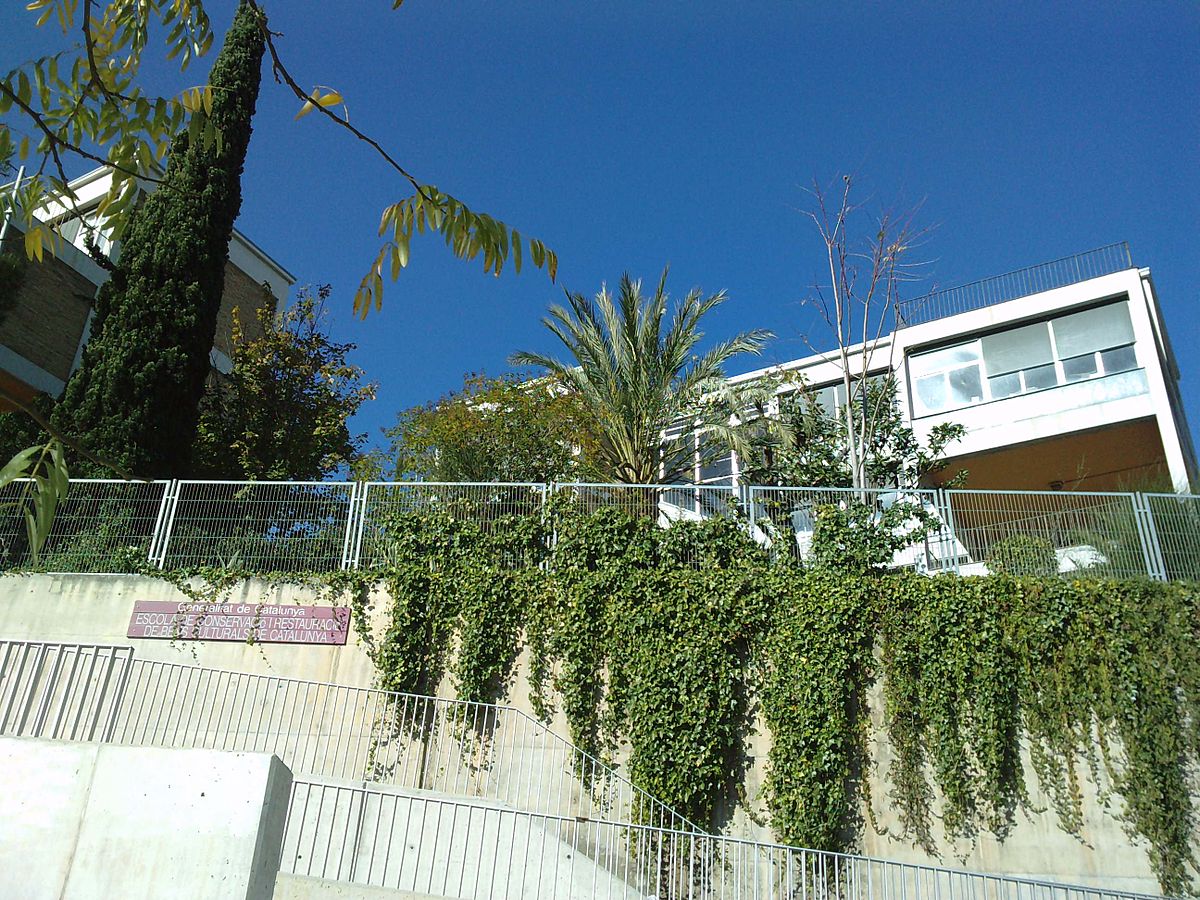
Born in 1991 as a consequence of the development of conservation and restoration due to scientific and technological advances, it was necessary to educate highly qualified professionals in the area.
It is located in Barrio de la Trinitat, in the city of Barcelona, it has graduate programs and master programs inside cultural conservation and restoration.
The 4 best private universities in Barcelona
1. International University of Catalonia
Universitat Internacional de Catalunya (UIC)
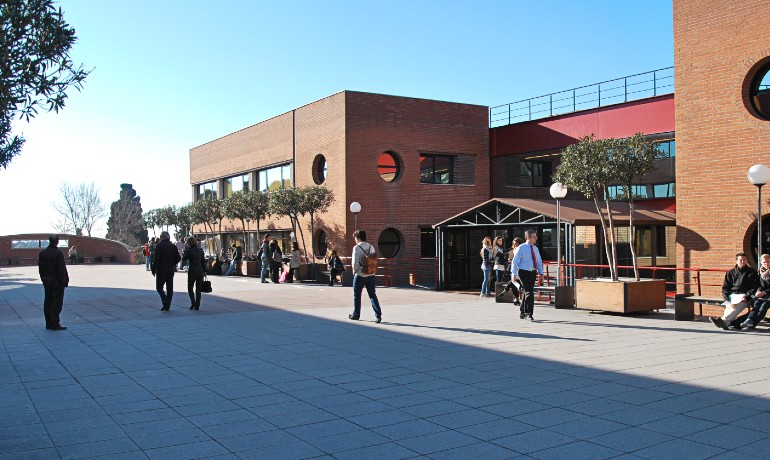
Founded in 1997, it has its headquarters in Barcelona, nevertheless it also has two campuses: one in Barcelona and the other one in San Cugat del Vallés. Over 6,000 students attend this university in the different 15 degrees, 26 international dual degrees, and master’s and postgraduate programs and continuing training courses that it offers.
Among its faculties, you will find the ones that specialize in Economics and Social Sciences, Communication Sciences, Law, Education, Humanities, Medicine and Health Sciences, Odontology and Architecture.
2. Ramon Lull University
Universitat Ramon Lull (URL)
 |
Founded in 1990 and named after a famous writer and philosopher born in the 13th century, it currently contains several different colleges specialized in various topics most of which are located in downtown Barcelona. Some of them are: Philosophy and Humanities, Engineering and Architecture, Social Studies, International Relations, Business, Law, Management, Turism, and Design.
3. Open University of Catalonia
Universitat Oberta de Catalunya (UOC)
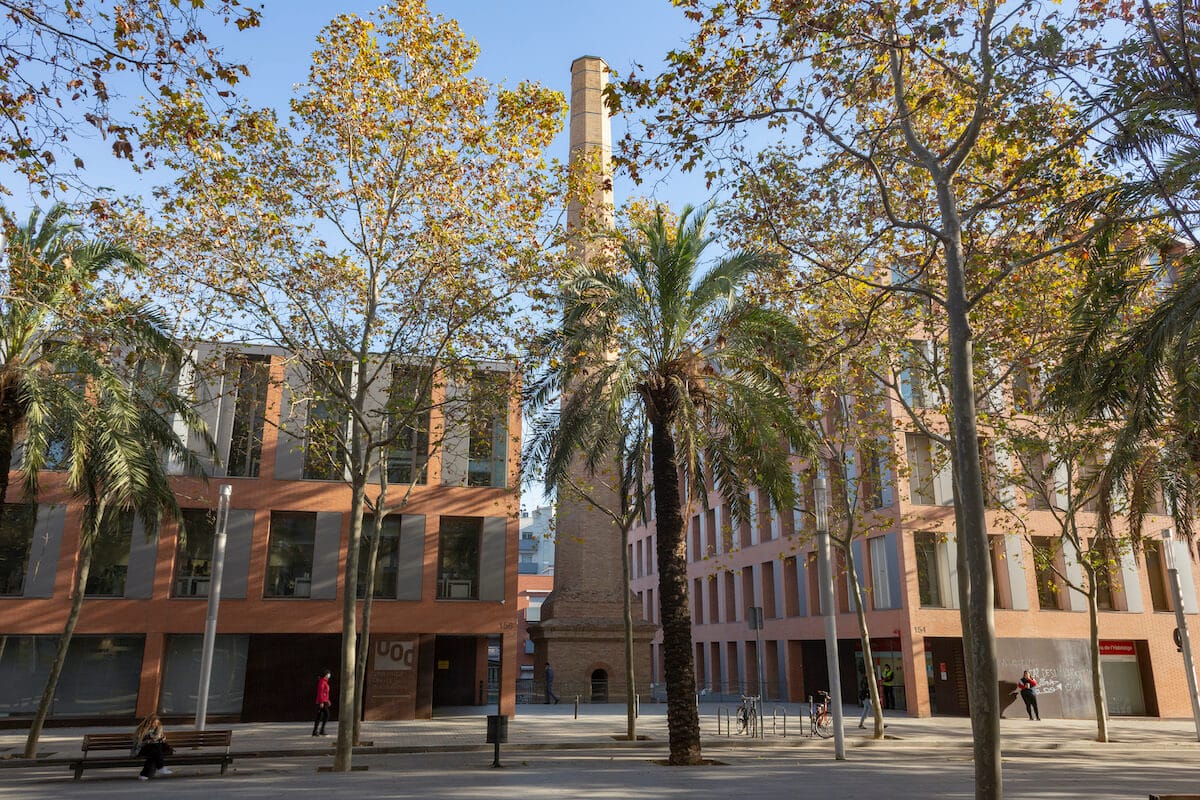
It offers graduate and postgraduate programs in Catalan, Spanish and English in fields such as Psychology, Computer Sciences, Sciences of Education, Information and Knowledge Society, and Economics. The UOC also offers an Information and Knowledge Society Doctoral program that explores research fields like e-law, e-learning, network society, education, and online communities. These courses are divided in different faculties: Art and Humanities, Economics and Business, Health Sciences, Information and Communication Sciences, Computer Science, Multimedia and Telecommunications, Law and Political Science, and Philosophy and Education Sciences.
4. Abat Oliba CEU University
(UAO CEU)
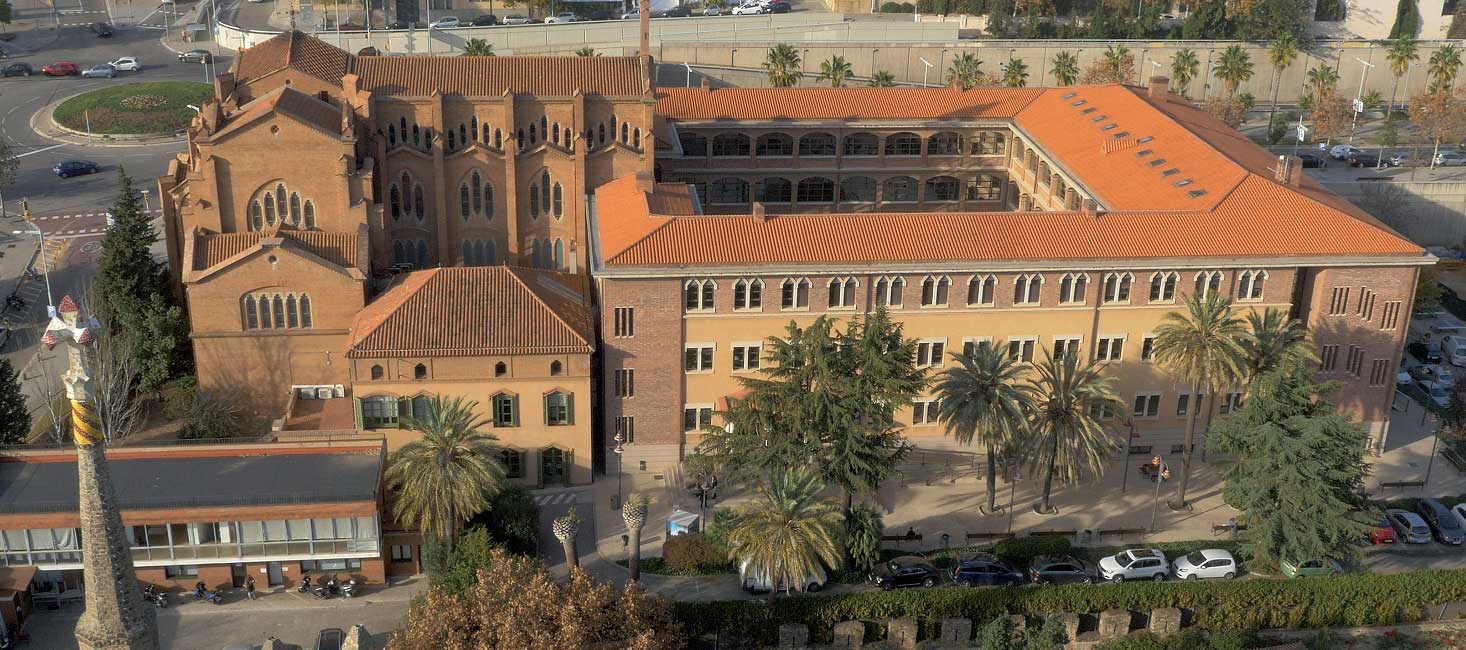
Founded in 1973 as the Abat Oliba College, it adopts its name inspired by the Count of Berga and Repoll, bishop of Vic and founder of Montserrat.
The origin of the current university is in the CDES Abat Oliba, an institution created by Fundación San Pablo – CEU.
According to the 2009 Spanish Universities ranking, the Institute for Industrial and Financial Analysis (IAIF) of the Complutense University of Madrid, the UAO CEU ranks 1st among the Catalan private universities in terms of teaching, while in research, it holds the 3rd position nationwide.
Is your focus more on Business? Here you find the best Business Schools in Barcelona.
Frequently asked questions
How can I apply to a university in Barcelona?
Do I need a student visa or NIE?
How much does it cost to study in Barcelona?
How can I apply to a university in Barcelona?
Since every university has its own rules and there’s no centralized system in Spain, you will have to look for the special requirements of the university of your interest and send them the documents. Be aware of the deadlines!
Have in mind that, usually, universities save about 5% of their vacancies for international students, so the competition for entering can get hard. Read closely every step of the procedure your chosen institution asks for in their websites, and don’t miss the chance. If you have doubts, try to contact the student secretary office.
Find here the complete guide to applying to a university in Spain for international students.
Do I need a student visa or NIE?
Please, take into consideration that if you live in Schengen area (EU, EEA and Swiss nationals) do not need a visa to study in Barcelona, but they do need to register for the NIE.
Non-EU citizens must apply for the Spanish student visa at the nearest Spanish Embassy or Consulate (or from Spain if you’re already there). Please mind that you already can get the visa before starting your studies at the university. For example when you start a full-time Spanish course of 20 lessons per week or more or one of the Spanish University Pathway courses. If you study Spanish for 6 months or 1 year you can renew your Spanish student visa in Spain to continue with your studies at the University.
How much does it cost to study in Barcelona?
To live in Europe can be pretty pricey, but Spain is definitely one of the most affordable countries compared to the other European places. It is true that Madrid and Barcelona, for being the big cities that they are, can be a bit more expensive, but it really will depend on the lifestyle you have.
Public universities
Regarding the study fees, official degrees at public universities in the whole territory of Spain are set by the autonomous communities within guidelines set down by the General Assembly for University Policy. Nowadays, tuition fees for a Bachelor’s degree at a public university range from EUR 450 to 2,000 per year. Master’s and Doctorate fees are calculated per credit, being one credit equal to 25 to 30 hours of student work, and costs can vary between EUR 900 to 3,000 per year. Non-official degrees fees in public universities are set by each one of them.
Have in mind that students from inside the EU will pay the same tuition fees as Spanish students, but the ones from outside the EU -and those who are repeating a subject- will have to pay more.
Private universities
Every private university will set its own fee, depending on the course and institution. Usually, tuition fees for bachelor’s, master’s, and doctorate degrees go from EUR 5,000 to 18,000, but of course we recommend checking it with the one of your interest before travelling.
Other relevant articles
Study visa for Spain
- Do I need any visa to study Spanish in Spain?
- How to get a Spanish study visa for non-EU citizens? (applying from your home country)
- How to apply for a student visa while in Spain?
- How to renew a Spanish student visa?
- Can I work in Spain with a student visa?
- Medical insurance for Spanish student visa – all you need to know
- What is the NIE and how do I get it?
- What is the TIE and how to get it?
Study at a Spanish University
- How to apply to a university in Spain for international students
- PCE University Spain access exam for students from EU, China, Norway, etc.
- The best universities in Barcelona for international students
- The Best Business Schools in Barcelona
- The 9 Best Universities in Valencia for international students
- The 9 Best Universities in Madrid for international students
Other interesting information
- Find the best English speaking lawyers in Spain
- The Linguaschools complete and comprehensive guide to Spanish paperwork.
Anything to add? Share your own experience in the comments below!
DISCLAIMER: We have gathered information to our best knowledge, from our experience, using many different (official) sources. Regulations change and interpretations may vary per country or region, but also between public office or staff. No rights can be derived from any of our articles. The content is merely a guide and we recommend you to check information with official sources before and during the process.










